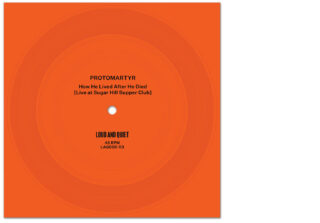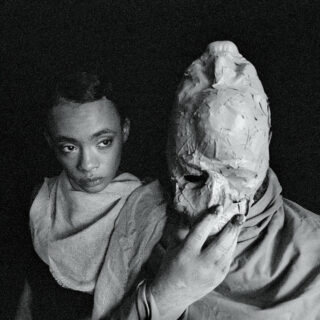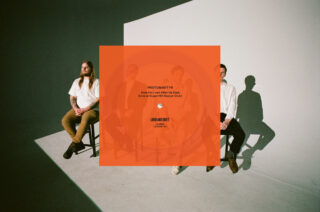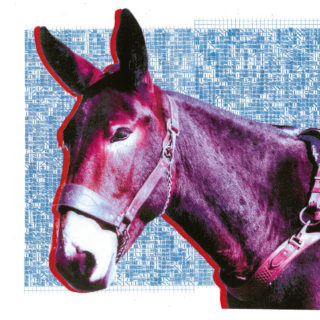Day Residue
JC: Day Residue are a Detroit band. What I like about them is that they are almost an inverse Protomartyr, in that the band members are mostly old fellows – or guys like Greg’s age – and the lead singer is a younger woman. The guys (in Day Residue) started playing shows with us, and still have that same energy. They’re bringing their chops of being in bands forever, and she’s bringing her youthful energy. Her I-don’t-give-a-fuck attitude is refreshing; it’s good to see a band like that thriving in Detroit. They’re currently recording and anything I can do to draw attention to them I’m keen to do.
 Anadol
Anadol
GA: When I first heard about this feature I was like, “I think she’ll qualify!” I honestly know next to nothing about her, except that I love her music. I’ve been obsessed with it since I heard it. I’ve listened to her last two records on repeat. We were just in Berlin a few days ago [where Anadol lives, having moved from Turkey] and when talking to a label rep I was like, “Tell me everything you know about Anadol!” I can’t really find much info other than that the music is incredible, with these Arabesque layers mixed with this electronic sound. It’s beautiful and reminds me of the best techno to have come out of Detroit.
TG: ‘Eciflere Gel’ off Felicita [her second record] is an amazing track. I love the looped groaning that comes in on it.
GA: I know! I’ve no idea how she even created it, I thought it was all found sound and samples and synths and drum machines, but I saw there’s some session musicians playing, and then there’s obviously vocals too. It’s so rare I’ll hear a record and think, “What the fuck?” and be totally blown away by it.
JC: I gotta listen to this.
GA: The angle is to try and make something that has this effect on somebody, but I don’t know if I’ll ever get there. In the meantime, it’s so enjoyable to listen to this.
TG: Her songs sound like soundtracks, which is something you did before this record right, Greg?
GA: During the worst of the Covid depression – when I didn’t want to touch an instrument and didn’t want to think about music – I got asked to score a couple short films. I really only agreed to it as I needed money, but doing them was really exciting. Listening to music with that ear again and watching films to see how the score can elevate and move the story along was interesting. Then I made some score stuff that Joe can sing over that needn’t even be a Protomartyr album. I took that mentality and folded it into the band’s dynamic. I didn’t know if it changed the songs all that much but scoring soundtracks changed my approach, and made me excited to write again. Hearing a record like Anadol was exciting to me.
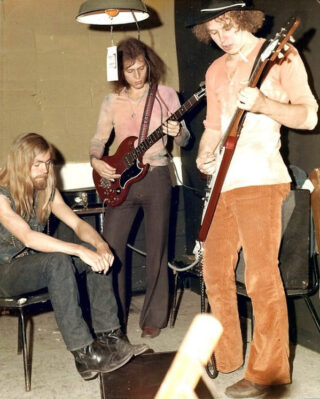 Third Power
Third Power
TG: They seem like the epitome of an under the radar older band. Released one album, then disappeared.
GA: Yeah! I remember hearing Third Power on [legendary New Jersey radio station] WFMU. It was the track ‘Lost in a Daydream’ and I thought, “Oh shoot, this song is amazing.” I didn’t know anything about them but got the record and was blown away.
I still don’t know how this happened, but around that time I got a Facebook friend request from this random guy. I thought he had a funny name, which was Jem Targal. I didn’t really think about it and left it in my requests and then several months later I was listening to Third Power and decided to look them up. I didn’t know they were from Birmingham, Michigan – which is just outside of Detroit – and then I saw the singer’s name was Jem Targal. I went back to Facebook and realised it was the same guy!
I don’t know if he added me by accident as I had never mentioned Third Power to press at that point. During Covid I was listening to Believe [their only album, from 1970] again and again, and was probably drinking a lot. So with liquid Covid courage I messaged him and when he wrote me back he was super nice and gracious. He sent me some unreleased stuff and we kept talking back and forth. It really meant a lot to me, but sadly he passed away a few months later. During Covid that was one of the only times I reached out to anyone, and I’m so happy I did.






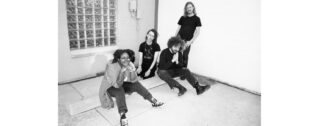
 Anadol
Anadol Third Power
Third Power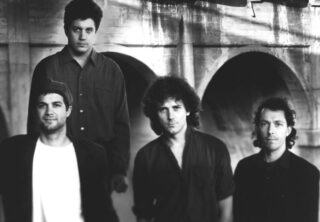
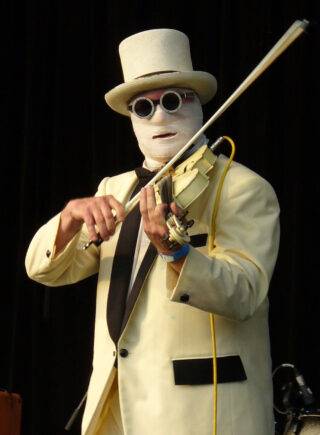 Nash The Slash
Nash The Slash